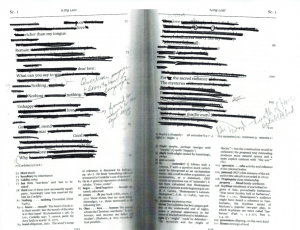When I read “In Praise of Muhammad: Urdu Poems” by Professor Ali Asani, I could not help but draw connections between Islamic culture and poems and Western culture and poems. In his essay, Professor Asani talks how poetry is a common way for Muslims to express their love and veneration for the prophet Muhammad. Moreover, in the Urdu language poems that specifically praise Muhammad are called “na’ts.” Professor Asani continues to describe the different types of “na’ts” that exist (i.e. the qasidah, the masnawi, the baramasa, etc.) and how many of the “na’ts” express an intense emotion of love for Muhammad and his mysticism.
Clearly, it seems that Muhammad is a popular topic for Islamic poetry. Similarly, I believe that in Western culture the generic and large theme of “love” is one of the most widely discussed and praised themes and concepts all the way from the time of the Ancient Greeks to poets today (http://www.wisegeek.com/what-are-the-most-common-poetry-themes.htm)! Undoubtedly, our first nursery rhymes (Roses are red, violets are blue…), Shakespeare, e.e. cummings, Pablo Neruda, and mostly every poet/ writer out there has at one point touched upon the theme of “love.” In my work, I tried to contribute to large bank of “love” poems that exist out there today, similar to how Muslim poets contribute to the large bulk of “na’ts” out there in the world today. Just as there are different types of “na’ts” that exist (the quasidah, the masnawi, the baramasa, etc.), there are certainly many different types of poetry written about love — from rhyming couplets to haikus to limericks to free verse poems and so much more! I wanted to write a “love” poem using a less well-known structure of poetry and creative writing that I’ve heard be called “blackout” poems. Basically, I take a text or piece of writing that exists out there in the world and blackout words until I’m just left with words that will form my poem. I used William Shakespeare’s King Lear (Act 1 Scene 1 in which Cordelia is telling her father King Lear that she cannot and will not tell him how much she loves him, unlike her sisters who profuse their love to their father because they know that will land them favorably in his death will). The poem I came up with is as follows:
Poor love, richer than my tongue,
Remain.
Dear love, What can you say to win?
Nothing, nothing
nothing.
Unhappy love,
Go, mend, mar.
Good love,
Why love at all?
For the sacred radiance,
the mysteries
–this for ever.
Similar to how Urdu poets praise Muhammad in their poems, I wanted to try to praise the concept of “love” to the best of my ability. First, I personified loved through using the apostrophe of “poor love,” “dear love,” “unhappy love,” and “good love” to speak directly to “love” as if “love” were a person. Talking to this “love” I made sure that the adjectives describing “love” were either positive (“dear” and “good”) or at least not negative (“poor” and “unhappy” are adjectives that symbolize that “love” has been wronged, not that “love” has done anything wrong). This is where my poem diverges from similarities form “na’ts”–“Poor” and “unhappy” are adjectives that Urdu poets would most likely not use to describe Muhammad. At times it may seem that there are conflicting ideas in my poem–after all, I ask love to “remain” yet I also ask love to “go, mend, mar.” I think my poem is a comment on how “love” can be a healing and yet also destructive force at times. Moreover, there is “nothing” love can “say to win” because words of love are useless and meaningless in comparison to actions and intent–a common theme in King Lear, too. Finally, I think my poem comments on how love can have both very negative and very positive effects but in the end the reason why we “love at all” is because “love” possesses some type of “sacred radiance” and “mystery” and some irreplaceable human experiences that will “remain” with us throughout our lifetime. In other words, “love” is a feeling that will stay with us “forever.” In my opinion, this poem was my best way of trying to praise “love”–by addressing its flaws but still acknowledging its transformative, influential, and necessary influence in life.

Recent Comments